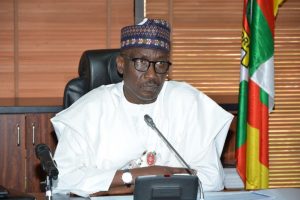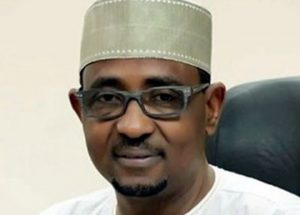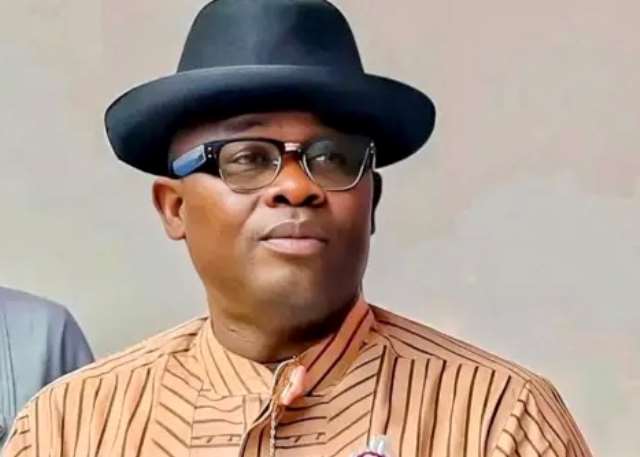By Ayo Akinsola
Following the discovery of Methanol-blended petrol otherwise known as Off Spec fuel by the Nigerian National Petroleum Company Ltd and the Nigerian Midstream and Downstream Petroleum Regulatory Authority (NMDPRA) and the withdrawal of the commodity from the markets across the country, blame culture or blame game has broken loose – some well-intentioned and corrective, some vexatious.
The news of the imported off spec petrol broke last week as motorists besieged filling stations for petrol when the “adulterated’’ commodity was withdrawn by the authorities and since then while some are calling for the scalp of the officials of NNPC and NMDPRA. This batch of products contained methanol in a proportion that is too high for use in the Nigerian region considering the high oxygen levels in the fuel and the temperature of our region.
Methanol is a clean burning, high octane blending component made from alternative non-petroleum energy sources such as natural gas, coal and biomass. It has been commercially blended into gasoline at various times and locations since 1980. Following the crude oil price shocks of the 1970’s, methanol blending in gasoline was first introduced commercially in the early 1980’s. Because carburetted fuel systems have limited ability to handle high oxygen levels in the fuel, methanol blends were generally limited to 3 to 5 volume percent of the gasoline blend.
For the mischief-makers or those who are all-out to rubbish the enviable achievements of the duo of President Muhammadu Buhari as the Minister of Petroleum and the duo of the Minister of State, Chief Timipre Sylva, and the Group Managing Director of NNPC Ltd, Mele Kyari, they have forgotten that it was the NNPC that discovered the off spec fuel in the first instance and announced a massive withdrawal of the product nationwide. This was in a bid to ascertain the levels of methanol and determine the appropriate actions to mitigate the issues arising.

Consequently Kyari launched a major investigation to unravel the cause(s) of the unsafe quantity of Methanol in the petrol imported into the country. In a swift reaction on Wednesday night, Kyari briefed the press and revealed the companies that imported the four petrol cargoes as MRS, Emadeb/Hyde/AY Maikifi/Brittania-U Consortium, Oando and Duke Oil and ordered the holding back of all the affected products in transit (both truck & marine). Shedding light on the consignments, Kyari said petrol brought into Nigeria usually does not include the test for the level of methanol content as this was not a typical blend in Nigeria’s gasoline supplies. He also maintained that cargoes’ quality certificates issued at the loading port in Belgium, by AmSpec Belgium, indicated that the product complied with Nigerian specification without indicating the percentage levels of methanol. “NNPC quality inspectors including GMO, SGS, GeoChem and G&G conducted tests before discharge which showed that the cargo also met the country’s standard,’’ the NNPC boss was quoted as saying.
To ameliorate the situation, the NNPC asked oil trading firms to embark on an emergency supply of petrol to replace cargoes that were rejected because of their poor quality.
He said: “In order to prevent the distribution of the petrol, we have ordered the quarantine of all un-evacuated volumes and the holding back of all the affected products in transit (both truck & marine). “All defaulting suppliers have been put on notice for remedial actions and NNPC will work with the authority to take further necessary actions in line with subsisting regulations. NNPC wishes to reassure Nigerians that we are currently sourcing additional cargoes to ensure product sufficiency.”
As a timely intervention and remediation, NNPC received delivery of 300 million litres of petrol to close the supply gap created in the country by the withdrawal of the off-spec petrol through six vessels ordered by the company.
In addition, a 9,000-metric tonne vessel being discharged at the Apapa Port, Lagos, to major marketers, including OVH, TotalEnergies, 11 Plc, Conoil, and Ardova Plc will also help rid the filling stations of queues.
Cautioning against blame game between NNPC and some of its designated importers over the ‘off spec fuel’, the national body of the Nigeria Union of Journalists (NUJ) acknowledged the proactive efforts of the Mele Kyari-led NNPC Ltd management to shore up the supply of petrol following the withdrawal from circulation of the contaminated commodity.
The union wrote in a statement signed by its National President Chris Isiguzo :“Since the unfortunate development, it is regrettable to observe that there has been some blame game between NNPC and some of its designated importers over the ‘off spec fuel’. It is important that as responsible corporate organizations, the importers of the contaminated fuel will take full responsibility and seek restitution for the economic mishap.
“What ought to obtain now is for a demand that the probe panel by President Muhammadu Buhari is conclusive, while adequate compensation be paid to all verifiable claims of those whose vehicles may have been affected by the high methanol PMS. Also after having appraised efforts by the Mele Kyari-led NNPC management notes with satisfaction measures to shore up supply of recalled contaminated fuel to ensure that Nigerians do not suffer needlessly.’’
A former Executive Director of an oil company in the country, who did not want his name in print, said NNPC has no blame in the whole matter, insisting that the importers are culpable.
“The good job by the gentleman at the helms in NNPC should not be destroyed; he has brought a lot of stability to the industry and reducing corruption to the barest minimum. No petrol scarcity or adulterated fuel since he took over.
“The government should sanction the four erring importer-companies,’’ a newspaper quoted him as saying.
Observably, as an industry watcher and stakeholder, importing adulterated petrol and other products has not been the stock-in-trade under the Buhari administration and since Kyari came on board at the state oil firm.
As a matter-of-factly and with the benefit of hindsight, Kyari made a promise and fulfilled it to end the perennial shortage of petrol and long queues at filling stations that the administration inherited from the Goodluck Jonathan government especially during and after festivities in December to January.
For two years running, the nation’s petrol stations had been rid of the long queues and keeping vigil all in a bid to buy fuel. It marked the termination of a decade-long monstrous and corruption-laden policy that remain unchallenged due to lack of political will and demonstrable capacity until the anti-graft administration of Buhari took the reins in 2015 with the “Change’’ mantra.

So far, President Buhari’s directive that a query should be given to the Chief Executive Officer of NMDPRA, Farouk Ahmed, and for an investigation into the bad fuel saga which had damaged the engines of some vehicles is a welcome development but the heat should be on the erring identified companies.
Buhari, who expressed worry about long fuel queues in parts of the country, especially in Abuja, Lagos, Ogun, Port Harcourt and others, had instructed the Minister of State for Petroleum, to ask Ahmed to explain how the product came into the country.
For the Independent Marketers Association of Nigeria Vice-President, Mr. Abubakar Maigandi, he is excited by the swiftness with which NNPC moved in and withdrew the bad products from circulation and assured: “NNPC is working seriously to see that they get the correct product so that the marketers will continue loading. Already, we have told all our marketers to stand by and we have started receiving decontaminated products.’’ Sharing the views of NUJ and others that there is no need for a blame game as all hands must be on deck, he equally expressed the hope that NNPC’s timely intervention will take the product to most of the filling stations nationwide in the next few days to assuage the plight of motorists.
Again, stakeholders have also called for intensification of efforts to get the Dangote Refinery and the ongoing rehabilitation of the Port Harcourt refinery on stream before the end of the year to relieve the country of the decade-long importation of petroleum products.
They also want other refineries resuscitated to ensure Nigerians’ access to affordable products, end the opaque subsidy regime, and protect the environment from the harmful effects of the ‘dirty’ fuel being imported from Europe.
In rare unanimity, industry watchers and stakeholders want Mele Kyari to remain focused on the transformation agenda which has moved NNPC of old to a new NNPC Ltd hitherto famed for being a cesspit of corruption, government’s convoluted interferences, unaudited accounts, inefficiency, and unprofitable state-run enterprise. And the clincher: Scrupulous and uncompromising implementation of the Petroleum Industry Act by the Buhari administration, a legacy worth bequeathing to Nigeria and Nigerians that will put the country’s oil and gas industry on an even keel.
One question that lingers on the minds of many Nigerians is: how did this off spec product get into circulation undetected and cleared as fit for distribution? While the shared responsibility for making sure that gasoline supplied is in line with specifications rests with all the parties involved in this blame game saga, the need to update our regulatory compliance checks cannot be over emphasized. Our regulatory compliance process is deemed outdated especially to the extent that it does not ascertain percentage quantity of alternative fuel that was blended. This gap needs to be closed by the responsible authorities so that Nigerians can be rest assured that this will not happen again.
Akinsola writes in from Lagos.
























Leave a comment